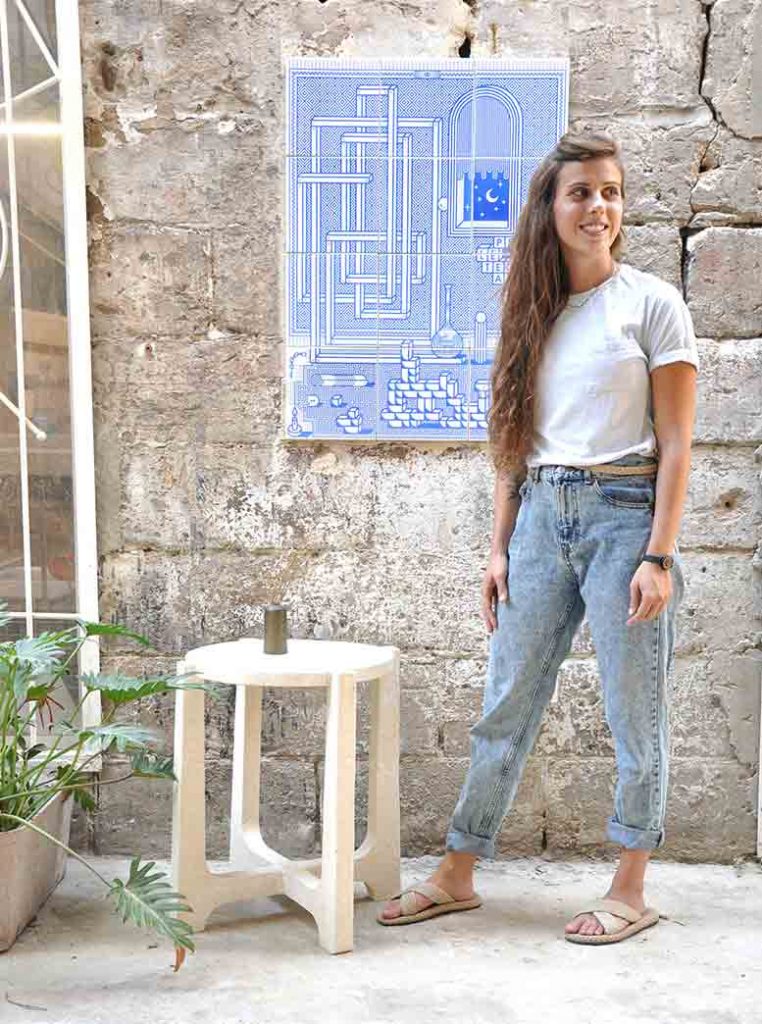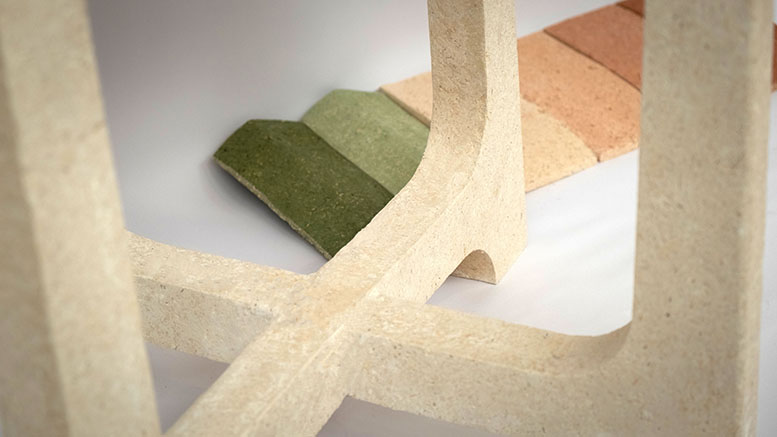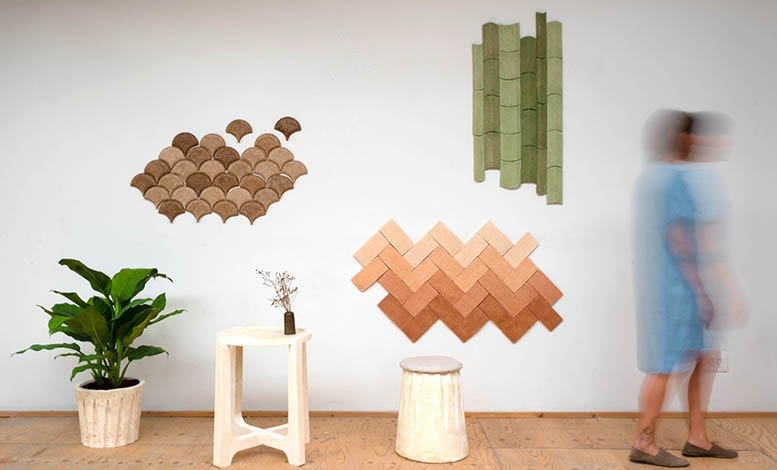An Israeli design student who has developed hemp-based composites for production of everyday objects says she sees the project turning into a business as developers look for alternatives to polluting raw materials.
“From the moment the project was publicized, I am receiving many requests for various collaborations,” said Noa Paul, whose thesis work at the Holon Institute of Technology in Holon, Israel, focused on proving hemp’s benefits as an alternative sustainable material applicable to interior design and architecture.

Paul, an industrial design student, produced a coffee table, a stool, a flower pot and decorative wall tiles from composite material comprising hemp hurd, lime-based binders, pozzolanic materials that harden the mix, and protein-based natural glue. The material is made entirely of components that can decompose and return to nature.
‘Unique aesthetic’
Paul said the material’s strength, moldability, water resistance, light weight and “unique aesthetic” prove it’s potential for application in a wide range of products for the home environment.

Paul purchased hemp hurd from different local suppliers who import the material for use in construction, combining it into the mix, which is then formed under pressure in molds.
“The hemp stem chips give it the ability to maintain integrity in humid conditions,” Paul said. “The material’s natural ability to absorb as a result of the pulping of hemp stalks enables it to store a great deal of moisture due to their porous structure.”

